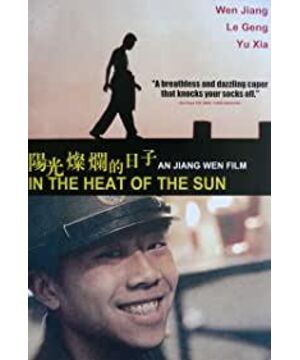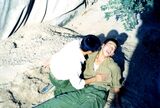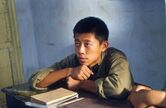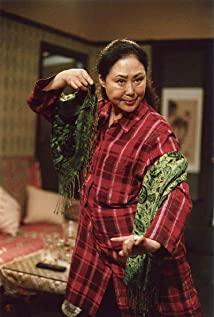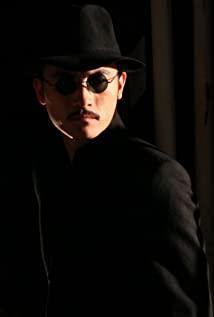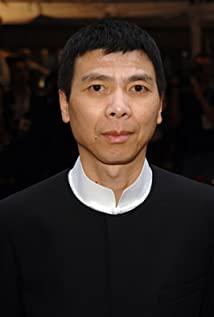Friends have always recommended this movie to me, and their evaluations are also quite high. So I am very curious, Jiang Wen, who was an actor, has just made a movie so successfully. Is it too much? I heard that it reflects the Cultural Revolution. How many surprises can this already smashed subject matter bring us? With doubts, I finally watched "Sunny Days" on a sunny afternoon. Director Feng Xiaogang once recalled Jiang Wen like this. He said that a movie should be wine, even if there is only one sip, it must be wine. For Jiang Wen, the movie is a very sacred thing. He believes that people who love movies should pursue this career. This kind of love should be very simple, desperate and not mixed with other things. Therefore, we see Jiang Wen's meticulous care when shooting the film. Every scene in the film is the crystallization of his deep affection for old Beijing and his outstanding talent. The film is the director's child. Jiang Wen's first child The birth naturally did not dare to slack off. Objectively speaking, the quality of "Sunny Days" can even be compared with Giuseppe Donatore's "Paradise Cinema". "Sunshine" recalls a dusty past in old Beijing through Ma Xiaojun's summer, while "Paradise". ” recreates the yesterday’s scenery of the Italian town through Toto’s growth. The Chinese film industry and even the world film industry were delighted and shocked by the appearance of this film. Finally, China has a film of international quality that can truly represent itself. However, it is still hard to believe that this is the debut of a person who has just turned from an actor to a director. Just like actor Mel Gibson made the sensational "Braveheart", Jiang Wen's success is not accidental. Everything stems from his innocence and persistent pursuit of movies. The theme article A large part of the world movie gallery is about growth, and many of them reflect the changes of the big era through the growth of small people, but in Chinese movies, the relationship between personal legends and the great changes of the times can be grasped just right. "Sunshine" is definitely the best. Within the scope of Chinese films, the film restores the style and appearance of that specific era. Different from similar films reflecting the Cultural Revolution, the focus of "Sunshine" is not the cruel and absurd history, but the youth and growth of a group of teenagers. History is just a foil here. , it casts a layer of mystery on the growth of Ma Xiaojun and his buddies. It is not terrifying, on the contrary, it is nostalgic. It has reached a certain tacit understanding with the restless and crazy youth, so that history becomes a period of sunshine in Ma Xiaojun's eyes. Brilliant day. The photography of the picture chapter is filled with a lot of sunlight, and the brightness is unreal. It seems that this kind of brightness can only be found in the memory, the beauty is like a dream, and it is breathtaking. The story takes place in the summer in Beijing, as the title says, "It seemed like it was always summer, the sun . Serenity plays Milan full of youthful temptation, she is the goddess of Ma Xiaojun. The Beijing government compound that appeared in the film, those ancient buildings that no longer exist, those past events that happened in Beijing, Ma Xiaojun is like a tour guide, let us go back to Beijing during the Cultural Revolution, so it can be said that Beijing is also the hero of the film . Tone: Memories are warm tones of orange, and reality is cool tones of black and white. Many directors have used this technique, such as Spielberg's Schindler's List and Zhang Yimou's My Father and Mother. This use expresses the author's respect and nostalgia for the past, which is always better than the reality, just like "the good old days". The narration at the beginning explained Ma Xiaojun's impression of Beijing now, "She has become a modern city in the past 20 years. I can hardly find anything in my memory from it. In fact, this change has destroyed my memory. I can’t tell the difference between illusion and reality.” Today’s Beijing is no longer the Beijing of yesterday, and the strange modern Beijing deepened his affection for the past, and he even regarded the past as a synonym for youth and freedom. Summer is always a sunny day. The reality is as cold as winter. As a result, the memories of youth are colorful, and the world of adulthood is strange and bleak. days". The narration at the beginning explained Ma Xiaojun's impression of Beijing now, "She has become a modern city in the past 20 years. I can hardly find anything from my memory in it, in fact the change has corrupted my memory, making it impossible for me to distinguish between hallucinations and reality. "Today's Beijing is no longer the Beijing of yesterday. The unfamiliar modern Beijing has deepened his affection for the past, and even he has regarded the past as a synonym for youth and freedom. At that time, Beijing was always in summer, and it was always a sunny day. The reality is as cold as winter. Therefore, the memories of youth are colorful, and the world of adulthood is strange and bleak. days". The narration at the beginning explained Ma Xiaojun's impression of Beijing now, "She has become a modern city in the past 20 years. I can hardly find anything from my memory in it, in fact the change has corrupted my memory, making it impossible for me to distinguish between hallucinations and reality. "Today's Beijing is no longer the Beijing of yesterday. The unfamiliar modern Beijing has deepened his affection for the past, and even he has regarded the past as a synonym for youth and freedom. At that time, Beijing was always in summer, and it was always a sunny day. The reality is as cold as winter. Therefore, the memories of youth are colorful, and the world of adulthood is strange and bleak.
View more about In the Heat of the Sun reviews


